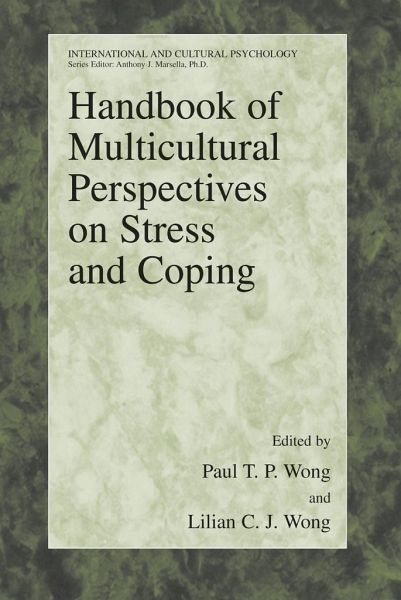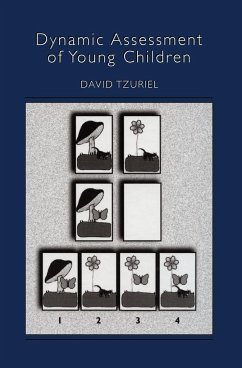
Handbook of Multicultural Perspectives on Stress and Coping
Versandkostenfrei!
Versandfertig in 6-10 Tagen
190,99 €
inkl. MwSt.

PAYBACK Punkte
95 °P sammeln!
Has the developing world developed modern concepts of stress? Are coping methods the same around the globe? Such questions are not simple to answer, and until recently, few knew to ask them.In recent years, Western psychologists have recognized that their prevailing views of psychology do not always translate worldwide-and that no culture has a monopoly on either stress or coping. The Handbook of Multicultural Perspectives on Stress and Coping was created to address this realization. This unique volume moves beyond simple comparisons of behaviors in other countries by clarifying critical conce...
Has the developing world developed modern concepts of stress? Are coping methods the same around the globe? Such questions are not simple to answer, and until recently, few knew to ask them.
In recent years, Western psychologists have recognized that their prevailing views of psychology do not always translate worldwide-and that no culture has a monopoly on either stress or coping. The Handbook of Multicultural Perspectives on Stress and Coping was created to address this realization. This unique volume moves beyond simple comparisons of behaviors in other countries by clarifying critical concepts in stress and coping, analyzing and synthesizing vast amounts of global data, and identifying constructs and methodologies necessary for meaningful cross-cultural research.
An international, multiethnic panel of forty-five contributors presents elegant studies of stress, survival, and resilience as cultures evolve and countries interact, including:
- Personal transformation as a coping strategy
- Psychological skills that enhance intercultural adjustment
- Individual versus collectivist values in coping
- Buddhist and Taoist traditions in coping
- The cumulative effects of historical, environmental, and political stressors on nations in the Middle East
- Specific cross-cultural perspectives, from Latino-American families to Canadian aboriginal peoples to minority university students
The editors have assembled a vital store of knowledge, raising crucial implications for clinicians working with immigrant/international populations, and evaluating the current state of theory, research, and assessment. The Handbook documents major steps toward scientific advancement-and human understanding.
In recent years, Western psychologists have recognized that their prevailing views of psychology do not always translate worldwide-and that no culture has a monopoly on either stress or coping. The Handbook of Multicultural Perspectives on Stress and Coping was created to address this realization. This unique volume moves beyond simple comparisons of behaviors in other countries by clarifying critical concepts in stress and coping, analyzing and synthesizing vast amounts of global data, and identifying constructs and methodologies necessary for meaningful cross-cultural research.
An international, multiethnic panel of forty-five contributors presents elegant studies of stress, survival, and resilience as cultures evolve and countries interact, including:
- Personal transformation as a coping strategy
- Psychological skills that enhance intercultural adjustment
- Individual versus collectivist values in coping
- Buddhist and Taoist traditions in coping
- The cumulative effects of historical, environmental, and political stressors on nations in the Middle East
- Specific cross-cultural perspectives, from Latino-American families to Canadian aboriginal peoples to minority university students
The editors have assembled a vital store of knowledge, raising crucial implications for clinicians working with immigrant/international populations, and evaluating the current state of theory, research, and assessment. The Handbook documents major steps toward scientific advancement-and human understanding.













